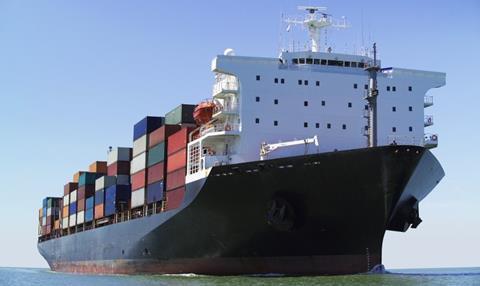A new timetable has been published by the UK government that details plans for introducing full import controls for goods being imported from the EU to the UK.

According to guidance published on the government's website, a revised timetable will give businesses more time to adjust to new controls that will be phased in across 2022.
New requirements on importing products of animal origin were due to be introduced from next month. Rather than introduce these controls at this time, the government said they have “listened to those who have called for a new approach to give businesses more time to adjust.”
Full customs declarations and controls will be introduced on 1st January 2022 as previously announced, although safety and security declarations will now not be required until 1st July 2022.
The government aims to work closely with the devolved administrations on the implementation of this new timetable, given their devolved responsibilities for agri-food controls.
Under the revised timetable:
- The requirements for pre-notification of Sanitary and Phytosanitary (SPS) goods, which were due to be launched on 1st October 2021, will now be introduced on 1st January 2022.
- The new requirements for Export Health Certificates, which were due to be introduced on 1st October 2021, has been pushed back to 1st July 2022.
- Phytosanitary Certificates and physical checks on SPS goods at Border Control Posts, due to be introduced on 1st January 2022, will take effect from 1st July 2022.
Safety and Security declarations on imports will be required as of 1st July 2022 as opposed to 1st January 2022. Full customs declarations and controls will be introduced on 1st January 2022 as previously announced.
"UK meat and chicken will become less competitive"
Commenting on the announcement, Tony Goodger, a spokesperson for the Association of Independent Meat Suppliers (AIMS) said: “AIMS note that the government is currently in listening mode and trust that they will continue in this vein when it comes to the issue of the labour shortage.”
Goodger explained that the further postponement to the introduction of border controls for meat and poultry products travelling from the EU to GB “provides businesses in Europe with a further grace period from the need to complete costly export documentation, whilst UK processors who continue to export into Europe continue to have these cost pressures. This will make UK origin meat and chicken less competitive in the EU.”
He added: “Furthermore, businesses who trade in both GB and EU will need to spread the cost of EU exporting across their business which could well lead to EU imports having a further competitive advantage in the domestic market.”
Katie Doherty, CEO of the International Meat Trade Association (IMTA) said: "With the announcement this morning regarding the delays to import controls, though it is welcome that there will be more time to work through some of the more complex certification challenges for EU meat imports to GB, this is yet another late notice change to a deadline that industry has to adapt to."
She continued: "Industry has been vocal in highlighting the problem with announcements such as this being left to the last minute and constantly changing cliff edges as they impact business planning decisions. Going forward we desperately need this government to commit to working in a way that allows for businesses to better plan. It is true that the pandemic and global shipping as well as driver shortages have challenged the agri-food sector in recent times but this is exacerbated by ever shifting timelines for changes that are within the gift of government to determine.
"Workable legislative timescales are necessary as well as better communications to industry if the government is to meet its ambition of having the best border in the world by 2025.
"We hope that we can work more closely with government in the coming months to make sure that the remaining complexities regarding the introduction of SPS import controls on goods from the EU are worked through in order that when the changes do come in on 1st of January and 1st July 2022 that trade and therefore consumers are less impacted. Imports are essential for UK food security in complementing domestic production and providing consumers with a choice of products year round."
This story was originally published on a previous version of the Meat Management website and so there may be some missing images and formatting issues.















